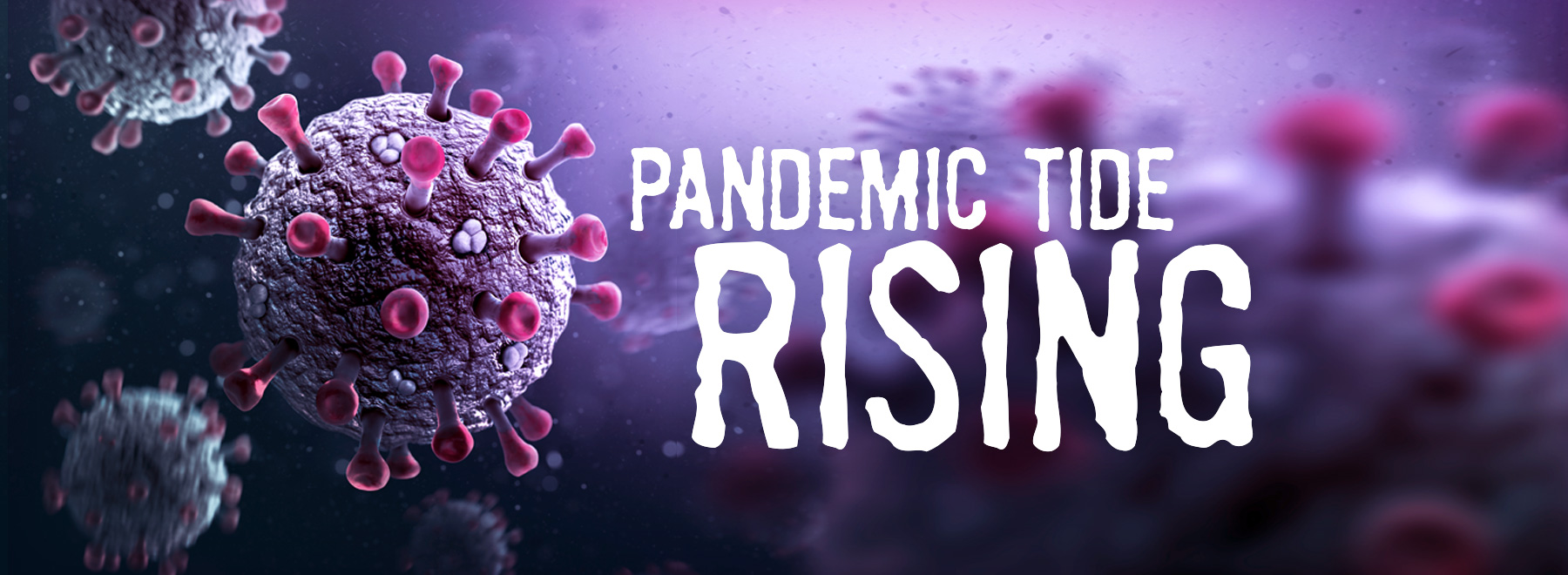COVID still lurks; keep your guard up
The newest Omicron variant of COVID-19 that has swept Mississippi and the nation isn’t playing around – and is so highly infectious that those who’ve already had the virus, immunizations and boosters are still at great risk of contracting it.

“From what we know, the Omicron variant BA.5 is predominant and extremely transmissible. It escapes immunity,” said Dr. Bhagyashri Navalkele, associate professor and medical director of infectious diseases at the University of Mississippi Medical Center.
“If you are exposed, you are certain to get it. That’s why the case numbers in Mississippi are so high.”
Because case numbers are significantly up, so are hospitalizations and the chance of those infected getting much sicker than just experiencing symptoms of the common cold or mild flu.
The Centers for Disease Control and Prevention is consistently reporting Mississippi as having one of the highest – if not the highest – national seven-day running average of daily COVID-19 cases per 100,000 population. The total cases do not reflect the true COVID count because so many people use home tests and don’t report the results to local health officials.
“We’ve seen people who got infected in January, and then got infected last month because there were different variants in January than now,” Navalkele said. “You can get Omicron BA.1 and then still be at risk for catching the BA.5 variant.”
“Unless you take precautions, you are probably going to get the virus. When we see rises in hospitalizations, we are also seeing cases where patients require oxygen and have severe infections. This is mostly in those who didn’t follow vaccine recommendations or didn’t get their booster, or who have health issues or are immunocompromised.”
“The case numbers aren’t doing complete justice to what is actually going on in the community,” Navalkele said. “A lot of people aren’t getting tested, and a lot of people are taking home antigen tests. We are probably having many, many more cases in the community than are being reported.”
She suggests the public take steps that include:
- Resume precautions including masking indoors and while traveling, meticulous hand-washing and avoiding crowds to lessen your chances of infection. Get vaccinated and boosted. All Americans ages six months or older can get a COVID vaccine, and those 5 and older can get a booster to provide an additional layer of defense against severe illness and death.
Vaccines are used to prevent severe disease, hospitalizations and deaths, but they don’t protect you from exposure or developing the virus.
Should you wait to get boosted until a new vaccine targeting Omicron variants is available?
“Definitely get boosted now,” Navalkele said. “Omicron-specific vaccine is still in the making and might be available by fall, but it’s difficult to say what the situation will be at that time, and if Omicron or some other variant will be dominant then.”
“We’re seeing people who are getting the virus for a second and third time because of the different variants,” Navalkele said. “If you get infected multiple times, or even one time, you are still at risk of developing long COVID. Getting infected causes you to lose time away from work and your routine activities, and you are putting everyone at home and work at risk. This can be children, grandparents. That’s what’s happening right now, in almost every household.”
- If you become infected, quickly determine if you’re eligible to take oral antivirals or monoclonal antibody infusions to significantly lessen your chance of severe illness, hospitalization or death.
Oral antiviral therapies, which can be prescribed by providers include Paxlovid and Molnupiravir. Pharmacists can prescribe Paxlovid, but not Molnupiravir. Navalkele recommends talking to your healthcare provider if you test positive to see whether an oral antiviral is the right option for you.
“Usually those eligible are the high risk population, but a lot of the time, people might not be aware they meet the eligibility. If you are mildly obese, for example, you can qualify,” she said.
Also available are monoclonal antibodies that fight particular infections such as Evusheld, used for prevention of severe infection in those with weakened immune systems, such as cancer or transplant patients. The FDA has limited use of certain monoclonal antibodies to treat the Omicron variants.
Evusheld is recommended only for prevention, and not for use in patients who have an active infection. Bebtelovimab, another monoclonal antibody, is used in treatment of patients who have tested positive.
“At UMMC, we have plenty of doses of the antiviral medications, and you can receive monoclonal antibodies in our Emergency Department,” Navalkele said.
Navalkele has a message for those who are setting precautions aside and are satisfied with “learning to live with” a pandemic.
“This is not the time to put our guards down. Putting yourself at risk of getting exposed and getting the infection is not worth it,” she said. “Even if you get infected, tomorrow, you will still be at risk for exposure, and we know that this variant escapes the immune response from a vaccine.
“I understand that it’s been two and a half years. It’s extremely frustrating. But, COVID hasn’t gone anywhere. We need to do the right thing. We can still enjoy activities. Just do it safely.
The above article appears in CONSULT, UMMC’s monthly e-newsletter sharing news about cutting-edge clinical and health science education advances and innovative biomedical research at the Medical Center and giving you tips and suggestions on how you and the people you love can live a healthier life. Click here and enter your email address to receive CONSULT free of charge. You may cancel at any time.



